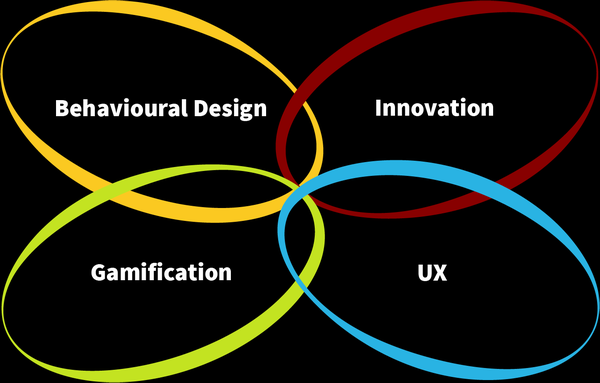It’s time to add the human dimension
WE CREATE BETTER EXPERIENCES BASED IN BEHAVIOURAL SCIENCE
Behavioural Design • Innovation • Gamification • UX • Experience design
Choice n. Election. Decision.
Labs n. Place of experimentation, improvement, creativity.
What is The Choice Labs
We are an agency specialising in the design of products, services, processes and experiences. With a solid and rigorous method, we apply the latest knowledge of human behavior to the development and improvement of any product, service or process that depends on the interaction with people.

What is Behavioural Science
Behavioral Science (BeSci) studies how people perceive, feel, think and decide. Related to disciplines such as Psychology, Behavioral Economics or Neuroscience, it provides new, surprising and extremely useful insights for anything that involves interacting with people: marketing, products and services, communications, processes, experiences, human resources, health, learning, habit creation, politics, policy making and public administration…
What is Gamification
Game makers, especially for online games, have been inventing strategies for many years to make their games more playful, interactive and engaging for players.
Gamification applies game techniques to non-game situations to improve engagement, motivation and interaction.
Our methodology
We have developed our own methodology, inspired from 3 different sources:
- Frameworks and methods developed by the Behavioural Sciences
- Our own 20 years’ experience in systems and process design
- Agile Project Management
Our services
This is a summary of the sectors in which we work, both public and private, and the actions we carry out.
Projects
Behavioral Science is a young discipline, even more so its use in real applications. It is unknown for many people, that is why we include several examples of the type of projects we carry out.
Nuestro equipo

Xavier Paz
Xavier Paz
MSC in Biology, MBA. He specialises in ecommerce, digital products, web projects and apps, strategy and business models, Gamification and Behavioural Design. Linkedin

Carolina Campalans
Carolina Campalans
PhD(c) in Social Sciences. Journalist. Master in Social Communication. Specialising in innovation management. She co-edited 4 research and educational books. Linkedin

Elisa Herrera
Elisa Herrera
PhD. BSc in Psychology. MSc in Gender Studies. Social researcher. Working in Human-Centred Design and Behavioural Science. Linkedin
Glossary
These are common terms in Behavioral Science and Gamification – you will find them often on this website and in our projects.
Behavioural Science terms
Gamification Terms
Get in touch
The Choice Labs
Diputació 391 Esc B 4-3
08013 Barcelona, Spain
Phone
T. (+34) 633 256 333
Email
lab@thechoicelabs.com
